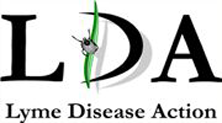This balanced report from the USA Lifespan Lyme Disease Clinic (LDC) has a description of difficulties faced by Lyme disease patients that many in the UK will recognise. The authors have looked back at records of patients who attended the clinic during 2018.
It is fairly clear that most of the patients studied had come to the clinic more or less in desperation. Over one third had had symptoms for more than 2 years and most had already had some antibiotic treatment, either for definite or presumed Lyme disease.
“Many patients have had antagonistic interactions with the healthcare system and are resentful that their symptoms have not been validated by the medical community. Many of our patients describe what has been reported in the literature including confronting “dismissive” and “condescending” attitudes towards their condition by other providers.”
Some of the patients attending this clinic may well not have had Lyme disease, but some certainly had. 37% of the patients with symptoms for more than 6 months had had a CDC positive IgG Western Blot test for Lyme disease.
The main symptoms are listed, with fatigue and joint pain or swelling most frequent. This is North American Lyme disease, and joint pain will be more common over there, whereas in Europe it is more likely to be nerve and/or muscle pain. Interestingly, on fatigue, the authors say
“Patients at LDC report fatigue symptoms that are worse than had been reported among patients with cancer and chronic pain. As with chronic fatigue syndrome (CFS), initial qualitative narratives from LDC patients suggest that there may be a complex relationship between physical activity and fatigue. For example, when patients resume their level of exercise prior to their “Chronic Lyme,” they often report “hitting the wall” and experiencing increased symptoms of fatigue.”
Where have you heard this recently? In reports about Long Covid.
The clinic focuses on listening to the patient and also considering other conditions and illnesses that might be causing some symptoms. Thought is then given to trying to find solutions to provide symptom relief for the individual.
The report makes clear that although we don’t yet have the answers, acknowledging the impact of illness and practising patient-centred care is important. The report concludes:
“In the midst of conflicting information and controversy in best practices for the treatment and management of Lyme disease, it is important for patients to have access to reliable information and treatment options for acute and ongoing symptoms. Meanwhile, the Lyme-treating community should continue to learn from ongoing experience.”
We in LDA will continue to work towards establishment of a UK specialist clinic, so that our health professionals can start to gather data and, critically, learn something about the legacy that significant numbers of Lyme disease patients try to cope with.

We made a start last year, see this photo from our workshop with doctors, researchers and patients, starting to define what a clinic could look like.
This was in November 2019, just before Covid-19 struck, and we will return to this when healthcare staff are less preoccupied with the pandemic.


 Printer Friendly
Printer Friendly